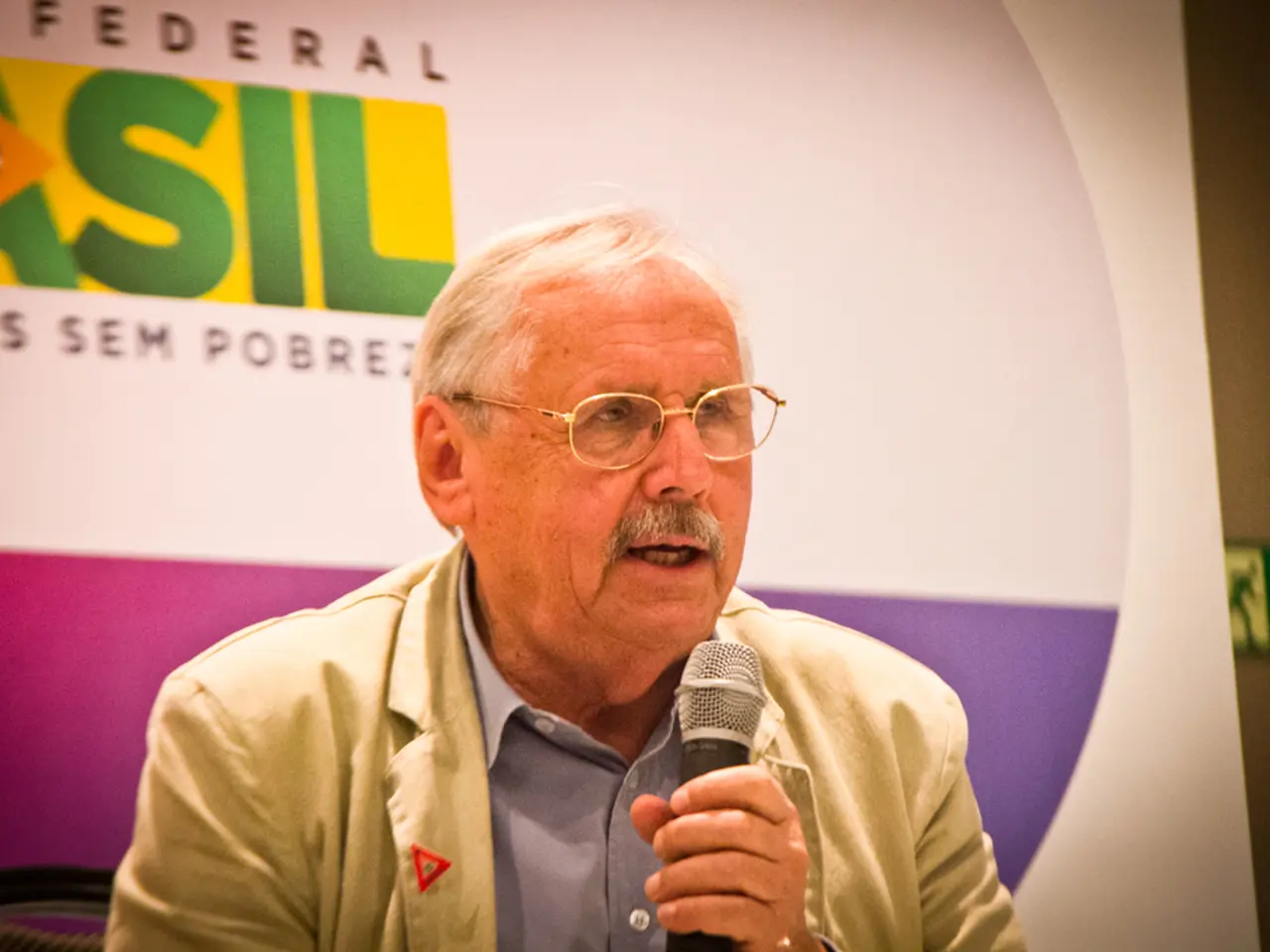Presidential Role and Political Positioning in Tajikistan's National Unity Government
Let's Talk Nation Unity: Emomali Rahmon, the Tajikistan Unifier
National Unity - a fundamental essence for any state's peace, stability, and development, especially for a nation like Tajikistan, which faced a brutal civil war not long after gaining independence in 1991. National Unity ain't just an idea for them; it's a lived, hard-fought reality. And at the heart of it stands President Emomali Rahmon - the peacekeeper, the leader, the man who's pulled off what others deemed impossible.
This piece dives into the President's central role in promoting and sustaining national unity, particularly on National Unity Day, celebrated every year on June 27th, marking the end of their damned civil war and the beginning of peace, reconciliation, and reconstruction.
Post-Soviet Tajikistan was in a world of pain - political instability, economic hardship, and violence plagued the land. The Tajik Civil War (1992-1997) was a devastating internal conflict, shattering the society along political, regional, and ideological lines. The central government's power waned, and the legitimacy of state institutions was sickeningly undermined.
Emomali Rahmon, then the Chairman of the Supreme Council, emerged as a ray of hope. His leadership was a symbol of the statehood and order amidst the chaos. Negotiations, facilitated by international mediators, led to the General Agreement signed in Moscow on June 27, 1997, putting an end to the civil war and kickstarting a new era of reconciliation and development. National Unity Day was born from these ashes, now a cornerstone of Tajikistan's annual calendar.
As per the Constitution of the Republic of Tajikistan, the President serves as the Head of State and the guardian of the nation's unity (Article 64). His responsibilities ain't purely ceremonial; they're backed up by legal and institutional frameworks that equip him to make bold decisions for the nation's welfare.
The President's symbolic role as a unifier is consistently reiterated through national discourse, political events, and state rituals. National Unity Day is typically marked with presidential speeches, national celebrations, and public events emphasizing peace, stability, and progress. The President's image is tightly linked to the idea of peace and harmony, making him the patriarch of the nation and a symbol of unity.
Rahmon was bestowed the official title of Leader of the Nation in 2015 by the Law of the Republic of Tajikistan, further solidifying his enduring status as a unifying and stabilizing force in Tajikistan's history. His presidential role during and after the civil war exhibited a strategic commitment to peacebuilding, overseeing the reintegration of opposition forces, promoting amnesty, supporting refugee returns, and restructuring national institutions to include representatives from various factions.
Rahmon's administration also worked tirelessly to foster a national identity transcending ethnic, regional, and ideological differences through education reforms, cultural initiatives, and infrastructure projects. The President's role extended beyond conflict resolution into long-term nation-building.
The title of Leader of the Nation encapsulated his peacebuilding legacy, allowing him to continue guiding national policy and societal development, emphasizing values like harmony, tolerance, and patriotism.
National Unity Day isn't just about remembrance; it's about renewing our collective identity. The celebrations involve participation from all corners of society, including students, veterans, intellectuals, and politicians. The President's central role in these celebrations underscores his symbolic status as the architect of unity.
The annual presidential address on June 27th is a significant political event, often utilized to reflect on the nation's progress, reaffirm the importance of unity, and set the tone for future advancements. These speeches also serve to remind the public of the dangers of disunity and the significance of national cohesion, thus strengthening the legitimacy of the current political order.
Without Rahmon's leadership during the 1990s, Tajikistan may not have survived as a unified, sovereign state. The challenge now lies in balancing strong presidential leadership with inclusive governance and democratic accountability.
In conclusion, President Emomali Rahmon plays a crucial role in the journey towards national unity in Tajikistan. As a constitutional authority, peacebuilder, and symbolic leader, Rahmon is central to Tajikistan's post-war transformation. National Unity Day signifies the commemoration of past sacrifices and the celebration of present achievements, with the President as the heart of its meaning.
His recognition as the Leader of the Nation cemented this role, enshrining his contribution to unity in the country's legal and historical framework. To maintain national unity, it'll require continued leadership, social cohesion, and democratic development. The legacy of presidential leadership in establishing peace must now evolve into broader societal commitments to inclusivity, justice, and shared prosperity.
- The role of President Emomali Rahmon in fostering and maintaining national unity in Tajikistan extends beyond conflict resolution into policy, legislation, and politics, shaping the country's post-war transformation.
- As the Leader of the Nation, President Rahmon's symbolic role in promoting unity is consistently reflected in national discourse, policy-and-legislation, and general-news, particularly during National Unity Day celebrations.







